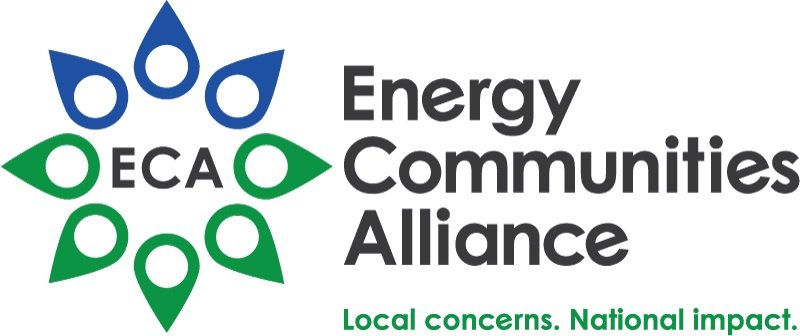DOE SECRETARY CHRIS WRIGHT APPEARS BEFORE HOUSE ENERGY & COMMERCE ENERGY SUBCOMMITTEE TO DISCUSS DOE BUDGET
Secretary of the Department of Energy (DOE), Chris Wright, appeared before the House Energy and Commerce Energy Subcommittee to discuss the President’s discretionary budget request for fiscal year 2026 (FY2026).
Chairman of the Subcommittee, Bob Latta (OH) opened the hearing by introducing the Secretary. During the hearing Wright outlined his priorities for DOE, including unleashing a golden era of American energy dominance, strengthening national security, leading the world in technological innovation, and establishing a reliable and abundant domestic energy supply. To do this, Wright envisions cutting red tape and leveraging DOE’s resources, including the National Laboratories, who are key to advancing technological breakthroughs. Nuclear is core to Wright’s vision for American energy dominance, and he fielded several questions from the members of the Committee, including on topics relating to nuclear development:
Representative Diana Harshbarger (TN) asked how committed DOE is to implementing the ban on imports of Russian uranium.
Wright said that DOE was working diligently to ensure compliance with the uranium import ban. He lamented that there is no American-owned enrichment facility based in the United States but noted that DOE “is working hard both through grants… and dialogue with providers in the country, to build up domestic commercial enrichment in the United States as fast as possible.” He stated that the United States should not be dependent upon Russia to fuel nuclear reactors, and expressed confidence in ending that dependence.
Harshbarger also asked whether DOE had “identified in the feedstock material to deliver 20 metric tons through down blending?” in reference to executive orders directing this action. Wright confirmed that DOE had, but also suggested follow up with Representative Harshbarger on the issue. Following this inquiry, Harshbarger asked how DOE engaging industry to support fuel development efforts.
Wright described his approach as “meeting with all existing people that work in the nuclear fuel cycle.” He noted that decommission of nuclear weapons and Russian imports of uranium had “devastated” the domestic supply chain in the United States for nuclear energy.
Representative Craig Goldman (TX) asked; “Abilene Christian University (ACU) has one of the two permits from the Nuclear Regulatory Commission (NRC) to build the next generation reactor. DOE committed in 2019 to provide the fuel and salt for the project as it does for every existing university research reactor. Will the DOE support this advanced nuclear project by honoring that commitment?”
Wright confirmed that upholding that commitment is DOE’s intention, and that DOE is working with ACU right now to determine how to best support and accommodate them. Wright stated that he is proud and impressed by the work going on at ACU.
Goldman also asked how DOE will support universities, technical colleges, and community colleges to train the next generation nuclear scientists and skilled workers and address workforce concerns in the nuclear industry.
Wright replied that he wants “to get young people excited again, and wanting to go into this industry. But that will only happen if we're building reactors, and they're selling power, and businesses are growing; that's what is going to draw people into the industry.” Wright reiterated that he believes that if reactors can be built and and drive costs down, then the nuclear industry can really take off and the new workforce will become interested.
Representative Russel Fry (SC) asked “What specific actions would you like the Committee to consider whether it's new legislative authority, or regulatory streamlining, to ensure that the loan programs office (LPO) can fully support this next wave of nuclear development and deliver results for communities.”
Wright: answered that he believes that the nuclear power industry has been hampered by a growing regulatory burden, commenting specifically on the stringent radiation thresholds that the Nuclear Regulatory Commission abides by. Wright stated that he believes the NRC should have “reasonable regulations that protect the environment and human health.”
In response to this question, numerous questions regarding the Department of Energy Loans Program Office (LPO), Wright acknowledged that the first-of-a-kind nuclear plants to be built will not be cheap, and that he believes the LPO could be helpful to push those projects over the line. He also stated that he believes the LPO is helpful tool to launch nuclear energy, and that DOE is we're requesting money for the LPO to serve that purpose. Commenting on next generation nuclear, he stated that “there are businesses that can be and will be long term commercial businesses but need a little help to get industry started again.”
Fry also asked: “How do you envision DOE supporting utilities, developers, and investors trying to build out grid infrastructure that can handle the next generation of nuclear and Datacenter load particularly in rural areas?”
Wright commented that there is permitting reform on both sides of the aisle. He stated that it is important to build out transmission lines and other necessary infrastructure to connect nuclear plants and datacenters to the grid.
In response to questions from Representative Jack Auchincloss (MA), Wright stated that he had advocated for legislation to grant nuclear energy tax credit treatment, under the condition on clear end dates for construction.
In response to a question on his thoughts about small modular reactors (SMRs) from Representative Gary Palmer (AL) Wright stated that he believes SMRs present opportunities to power refinement centers and data centers, because they provide affordable and reliable energy.
Gabe Evans (CO) asked Wright “What can Congress do to provide you in DOE with the resources needed to expedite the testing of a reactor for commercial use by 2026?”
Wright expressed his optimism for testing, noting that bipartisan support from Congress has been key in pushing forward nuclear testing. He highlighted the ARDP and DOME Testbed Initiative at Idaho National Lab as helping to promote new reactor designs. He also commented on how NRC reform could help to approve and deploy new reactors.
Chairman Bob Latta thanked Secretary Wright for his time and insights.
